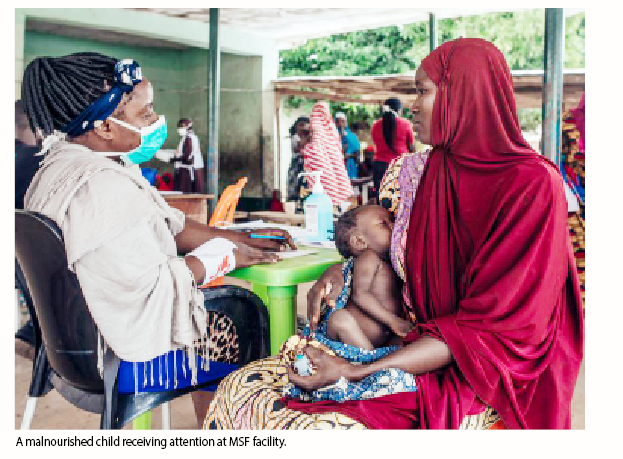Borno State Assembly Moves to Criminalise Diversion of Malnourished Children’s Food
Maiduguri, Nigeria — 16 May 2025 — The Borno State House of Assembly has pledged to enact legislation criminalising the diversion and resale of food products meant for malnourished children, following a disturbing alert raised by the United Nations Children’s Fund (UNICEF).
The commitment was made during a UNICEF visit to the Assembly’s Committee on Health on Friday to discuss collaboration on the Federal Government’s N-774 initiative, which targets childhood malnutrition at the grassroots level.
The Chairman of the House Committee on Health, Hon. Maina Mustapha, condemned the ongoing theft and illicit resale of therapeutic food items provided by donor organisations, promising the Assembly will introduce stringent laws to prosecute offenders.
“We will criminalise the issue of selling, taking, or stealing nutrition products supplied by donor partners,” Mustapha said.
“We claim we are poor and resort to selling whatever has been given to us by donor partners. Instead of using it for our children, we choose to use it for our personal gain.”
Focus on the N-774 Initiative
The N-774 project is a federal nutrition program spearheaded by Nigeria’s Vice President, aimed at addressing malnutrition in all 774 local government areas (LGAs) across the country.
UNICEF’s Chief of Maiduguri Field Office, Joseph Senesie, praised the Borno State Assembly’s action, describing it as a “bold and necessary step” to ensure vulnerable children actually receive the life-saving aid intended for them.
“N-774 is an initiative launched by the Government of Nigeria… to take nutrition down to the grassroots level.
In Borno State, we are localising it as N-27, to represent our 27 LGAs, ensuring that each community is covered.”
Senesie highlighted the need to form a state-level nutrition committee that would represent all LGAs, ensuring a community-driven approach to fighting malnutrition. He also noted that the success of the N-774/N-27 initiative relies heavily on political will, accountability, and community engagement.
Background: Alarm Over Aid Diversion
The House’s pledge follows recent reports from UNICEF indicating that Ready-to-Use Therapeutic Food (RUTF)—a crucial product used in the treatment of severe acute malnutrition—has been diverted and resold in markets across Borno, Adamawa, and Yobe states.
The food, intended to benefit over half a million malnourished children in Nigeria’s conflict-affected northeast, is reportedly being stolen and sold for personal gain, undermining years of humanitarian and public health efforts.
Next Steps
The Borno Assembly has vowed to work closely with UNICEF to draft and pass laws that deter the theft, misuse, and sale of donated nutrition products. The proposed legislation is expected to include strict penalties and mechanisms for monitoring the distribution of aid.
UNICEF says it will continue to support local governments in the implementation of the N-774 initiative, including capacity-building, technical assistance, and community engagement to ensure nutritional support reaches the most vulnerable children.


